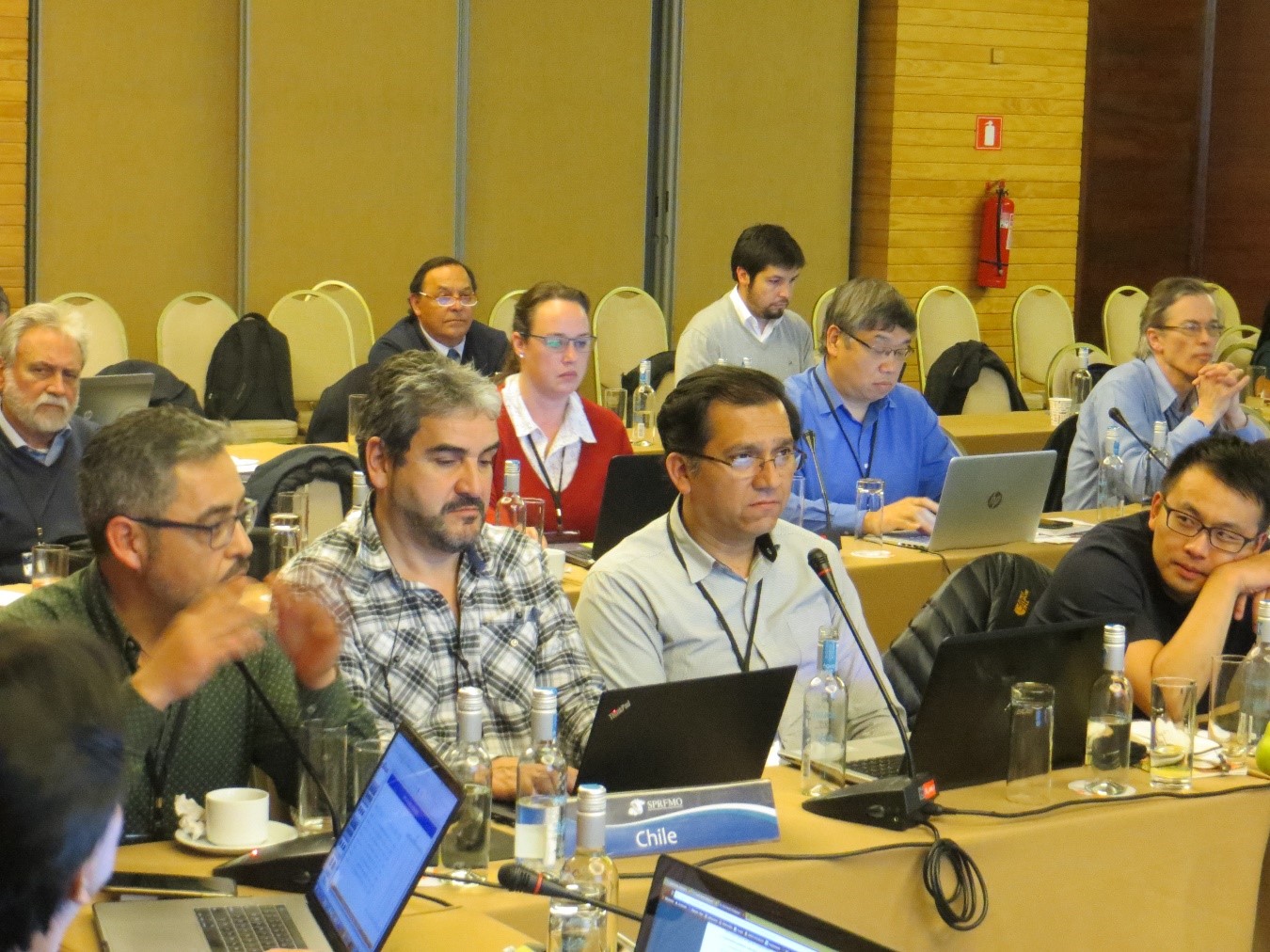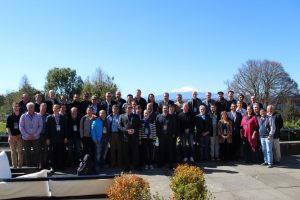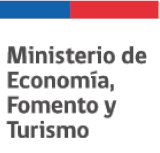

The Convention aims is establishment, adoption and implementation by its Members of conservation and management measures for fishing resources, as well as monitoring compliance and of conservation and management regulations implementation.
Between September 9th and 14th , in Puerto Varas, the scientific committee Regional Organization of Fisheries Management of the South Pacific, ORP-PS 6th meeting was held
The Convention’s objective is to ensure, through ecosystemic and precautionary approach implementation, conservation and sustainable management of fisheries resources and their ecosystems safeguarding in the long term.
RFMO-PS Scientific Committee work, www.sprfmo.int mainly focuses on jack mackerel, cuttlefish, deep water (orange roughage and deep-sea cod) fisheries and various ecosystemic aspects. Mauricio Gálvez and Ignacio Payá from IFOP advised on evaluation technical issues of horse mackerel stock, cuttlefish stock assessment, bottom fishing, vulnerable marine ecosystems, research fisheries. Dr. Cristian Canales, from Pontificia Universidad Católica de Valparaíso, invited by IFOP, advised mainly on horse mackerel stock assessment.
Horse mackerel stock evaluation considered the same model agreed in referencial workshop held during May in Valparaíso, but with updated data until 2018. The scientific committee suggested a status quo fishing effort that generates a biologically acceptable catch recommendation for 2019 of 591 thousand t throughout the distribution range of jack mackerel.
Cuttlefish stock assessment is at a development and discussion process. Chile presented its experience in intra-annual depletion models application based on ZEE catches of Chile’s, a program to simulate population dynamics and fishing exploitation in the area of convention and ZEE, and different simulation scenarios results. Peru presented a ZEE data applied model applied to Peru based on a structured model by age and with sizes observations. China presented a structured evaluation model by size and sizes observations, but without real data but simulated. In relation to last year, there was a breakthrough characterized by the consensus of applying models of intra-annual scale, the agreement to hold a workshop on cuttlefish stock evaluation and different breeds or phenotypes genetic sampling and analysis implementation ( small, medium and large) of existing cuttlefish.
In deep-sea fisheries area , Orange Roughy assessment and exploitation models carried out by New Zealand and Australia, exploratory deep-sea fishing and a proposal for exploratory fishing of crustaceans in seamounts were reviewed. In ecosystemic aspects, the analisis focused on impact of fishing on vulnerable environments, birds and mammals.




